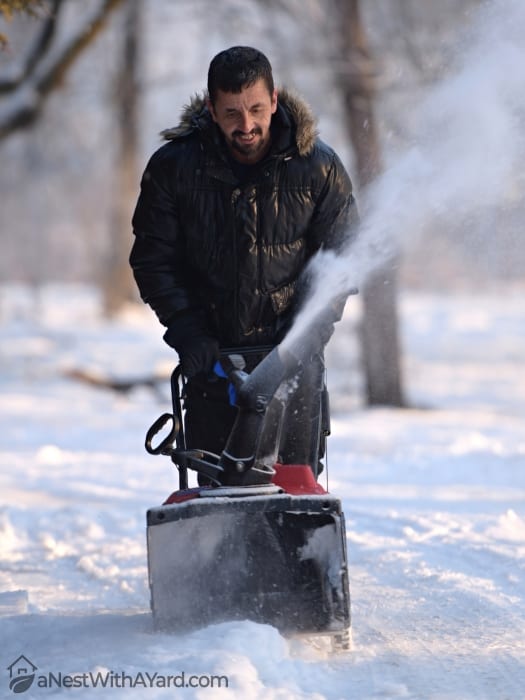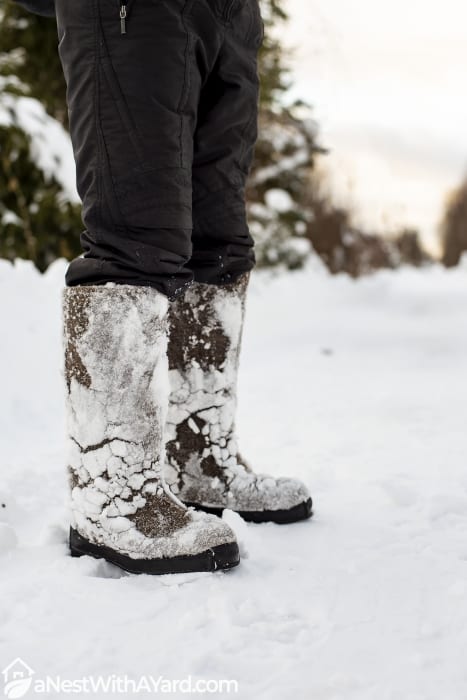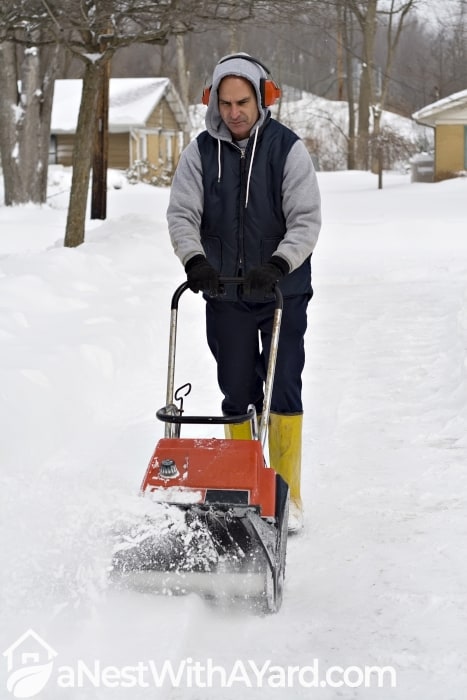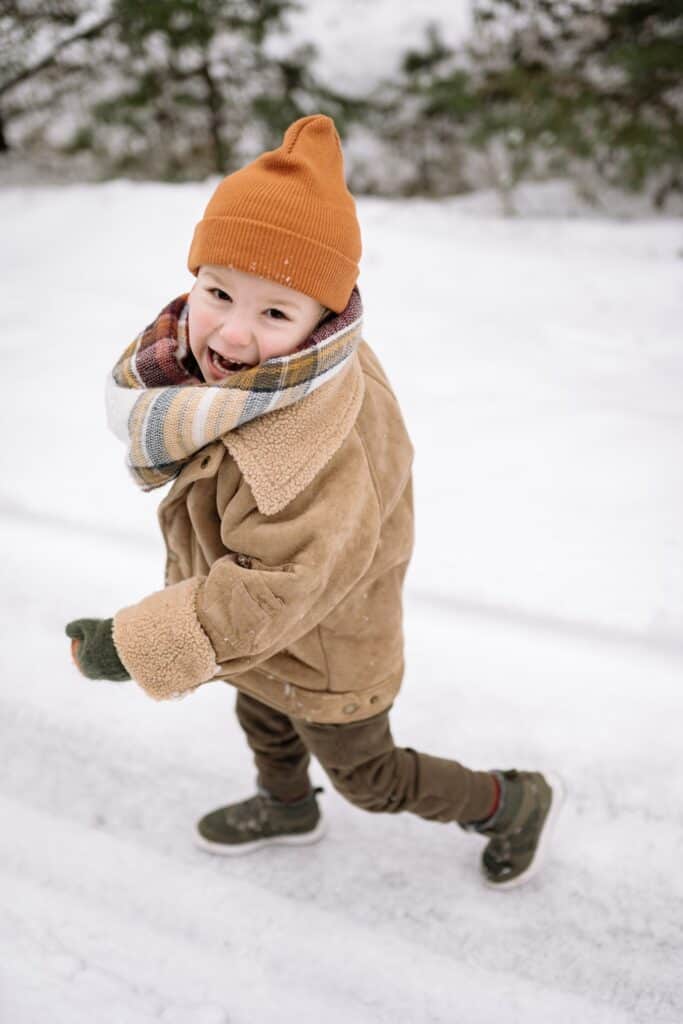
Prevent serious injury with this snowblower safety guide:
- Wear fitted clothing
- Wear non-slip shoes
- Protect your ears
- Pace yourself
- Keep kids indoors
- Keep the electric cord behind you
- Never start the snow blower indoors
- Never remove a clog with your hands
- Refuel when the engine is cold
Did you have a close call with your snow blower last season? Want to be safer this time around?
A lot of people can relate to your bad experience! Every year thousands of people suffer injuries to their fingers and hands because of the lack of knowledge and poor concentration while working.
On the bright side, these serious injuries can be easily prevented with inexpensive safety gear and simple precautions. These snow blower safety tips will keep you safe this winter!
Avoid Wearing Loose Fitting Clothing

Loose pants, shirts, scarves, jackets, belts, and even jewelry can easily get caught in the moving mechanism of a snow blower and pull you in toward the sharp impeller blades. It is best if you wear work overalls while blowing snow. Or, at least make sure your clothes are tucked in, zipped, and buttoned up.

Wear sturdy boots with good traction when operating a snowblower. These will keep you from slipping and falling on ice hiding underneath several inches of wet snow. If your winter boots don’t have good soles, you can improve them with shoe grippers. Click here to learn more tips and tricks for using a snowblower on wet snow.
Wear Hearing Protection

Snow blowers are extremely loud, especially those powered by gasoline. Prolonged exposure to loud noise can lead to hearing damage or hearing loss. The best thing you can do for your hearing is to wear ear plugs or other hearing protection when operating your machine. You can also look into electric models as they are less nosy.
Find out the other differences between electric vs gas snowblowers.
Pace Yourself
Although snow blowing is easier and faster than shoveling, you should still take breaks, especially if you have a medical condition or you are a senior. The best way to make sure you don’t overexert yourself is to listen to your body. I highly recommend you look at these snow blowers for the elderly and women that won’t strip you of your energy.
Keep Children Indoors

Kids and pets should stay inside while you are clearing snow. There is a danger of a flying rock hitting your child in the head, and children and animals can be dangerously curious, another reason why you should never leave your machine unattended while they are around.
Don’t Start The Snow Blower Indoors
Snow blowers should never be started in a garage or a shed, even if the doors are wide open. Snow blowers emit carbon monoxide, which can be extremely dangerous and even deadly when trapped in an enclosed space. So, always make sure you warm up your machine outdoors!
Remove Clogs With A Clearing Tool
Never stick your hands or feet into the moving parts to remove the clog, even if the machine is turned off. A clogged auger will still have some residual energy in it that can trap and cut your hand. Instead, use a clearing tool, a stick, or a broom handle to remove the jam from the snow blower chute and auger.
Find other useful snowblower safety tips in this video:
FAQs
Can you get carbon monoxide poisoning from a snow blower?
You can get carbon monoxide poisoning from a snowblower if you leave it running in the garage or shed. Snow blower exhaust trapped in an enclosed space can give you life-threatening injuries.
Can you get electrocuted with an electric snow blower?
You can get electrocuted with an electric snow blower if you run over the electric cord. If the cord gets caught in the moving parts, you can receive a shock or get electrocuted. Exercise caution and always keep extension cords behind the snow thrower.
Staying Safe Is Easy With These Tips
I told you! Staying safe while clearing snow isn’t difficult at all. You only need to follow these snowblower tips, whether you are a seasoned snow blower user or you are using it for the first time.
The most important rule to remember is to never put your hands near the moving parts. Stay focused on the task at hand, and take breaks if you feel exhausted. Most accidents happen when we are tired!
Do you agree? Let me know in the comments below, and feel free to ask me any questions. I would love to hear from you.







